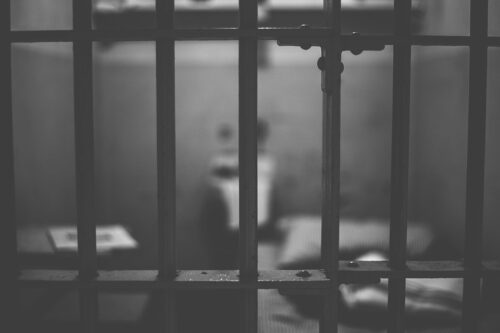
Pictured provided courtesy of Pixabay
By: Margaret Potter, Feature Editor
In June 2019, Pennsylvania became the first state to adopt a law that utilizes technology to automatically seal certain criminal records from public view. [1] This law was created with public support to help remove barriers that having a public criminal record created. [2] The Clean Slate law allows arrest records to be automatically sealed after charges are dropped, and provides for the automatic sealing of minor conviction records after 10 years. [3] Prior to the Clean Slate law, individuals with criminal records had the ability to file petitions seeking to have criminal records sealed or expunged. [4] However, only 6.5% of those individuals eligible to do so were filing such petitions. [5] This “second chance gap” – as referred to by the Clean Slate Initiative – is largely a product of the barriers to basic necessities posed by criminal records, such as employment and housing. [6] By facing barriers to such necessities, these individuals endure immense economic burdens that can prevent them from affording basic essentials – let alone an attorney to file a records clearing petition or foot the bill of the associated filing fees. [7] With the barriers that are created to employment and housing, many cite the existence of criminal records as leading factor to the state’s 60% recidivism rate – in this case, defined as 60% of individuals released from prison return to prison within 30 months of release. [8]
Since its inception, the Clean Slate law has resulted in nearly 35 million cases and 47.3 million offenses being sealed from public view, allowing 1.15 million Pennsylvanian’s the opportunity to freely pursue employment, educational, and professional opportunities. [9] The cases that have been automatically sealed in the past year mostly involve arrests that did not lead to conviction or convictions on summary offenses such as disorderly conduct, loitering, or low level retail theft. [10] Regarding the success of the Clean Slate law in the past year, Rebecca Vallas, a senior fellow with the Center for American Progress, says Pennsylvania’s law is “…evidence of what a commonsense solution Clean Slate represents to remove barriers to employment and address significant racial injustice around who is addled with a criminal record in this country and the permanent underclass that we’ve established.”
A year after taking effect, Pennsylvania’s Clean Slate law has served as a national model, exemplifying a criminal justice reform tool that positively impacts both state residents and the economy, as well as aiding in reducing the population of a nationally over crowded prison system. [11] In the past year, half a dozen states – including Utah, North Carolina, and Louisiana – have shifted towards an automated system for expunging criminal records. [12]
In May 2020, Utah became the second state to adopt a Clean Slate law, establishing an automated system to expunge certain arrests and misdemeanor convictions for individuals who have maintained a clean record for five (5) to seven (7) years. [13] In California, the state legislature passed its own Clean Slate law, which is set to take effect in January 2021 and automatically clears certain criminal records, including both convictions and non-convictions. [14] However, California’s law, once in effect, will apply only on a prospective basis. [15]
Despite the success that followed Pennsylvania’s Clean Slate law taking effect over the past year, criminal reform advocates in the state insist there is more to be done. [16] On July 1, 2020, Governor Tom Wolf signed into law a bill that prevents Pennsylvania residents from being denied an occupational license because they have criminal record. [17] The law was changed so residents with criminal records can only be denied an occupational license if the record “directly relate[s] to the practice of the profession or if their conviction poses a risk to clients and co-workers”. [18]
Specifically pertaining to the Clean Slate law, criminal justice reform advocates have identified that about 50% of those with otherwise eligible misdemeanor convictions statewide have been eliminated from automated expungement due to having outstanding court debts. [19] The requirement to pay these fines before receiving the benefits of the Clean Slate law have prevented thousands of Pennsylvanians from obtaining meaningful employment as well as disproportionately effecting black residents. [20] To rectify this, the PA House of Representatives unanimously passed House Bill 440 in December 2019, which eliminated the requirement that court debt must be paid to benefit from the Clean Slate law. [21] Under House Bill 440, which is awaiting state senate approval, only individuals owing restitution will be disqualified from the Clean Slate law. [22] Sharon Dietrich, managing attorney for Community Legal Services of Philadelphia’s employment unit, says “Clean Slate means a second chance for Pennsylvanians and removing barriers to success. We must ensure that is available to not only those with financial means but to all who need a fair chance at moving forward.” [23]
Given that Pennsylvania’s Clean Slate law has garnered bipartisan support, both sides of the aisle seem willing to fine tune the law as necessary to benefit state residents. [24] Sheena Meade, managing director for the Clean Slate Initiative in Pennsylvania, says “What I’ve learned is that this is not a partisan issue, this is a people issue, this is about the people.” [25]
[1] https://www.law360.com/articles/1290968/how-pa-is-setting-the-pace-on-clean-slate-reform
[2]https://mycleanslatepa.com/#:~:text=Clean%20Slate%20is%20a%20new,%2C%20although%20those%20cases…
[3] Id.
[4] Id.
[5] Id.
[6] Id.
[7] Id.
[8] https://www.post-gazette.com/opinion/editorials/2020/07/08/Second-chance-Pennsylvania-practical-compassionate/stories/202007030063
[9] https://www.inquirer.com/opinion/commentary/clean-slate-legislation-records-sealed-pennsylvania-covid-19-recovery-20200701.html
[10] https://www.law360.com/articles/1290968/how-pa-is-setting-the-pace-on-clean-slate-reform
[11] Id.
[12] Id.
[13] Id.
[14] Id.
[15] Id.
[16] https://www.inquirer.com/opinion/commentary/clean-slate-legislation-records-sealed-pennsylvania-covid-19-recovery-20200701.html
[17] https://www.post-gazette.com/opinion/editorials/2020/07/08/Second-chance-Pennsylvania-practical-compassionate/stories/202007030063
[18] Id.
[19] https://www.inquirer.com/opinion/commentary/clean-slate-legislation-records-sealed-pennsylvania-covid-19-recovery-20200701.html
[20] Id.
[21] Id.
[22] Id.
[23] Id.
[24] https://www.law360.com/articles/1290968/how-pa-is-setting-the-pace-on-clean-slate-reform
[25] Id.
